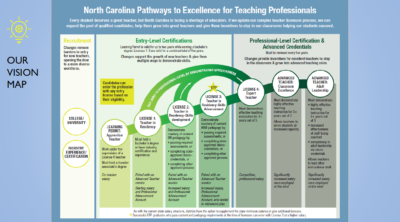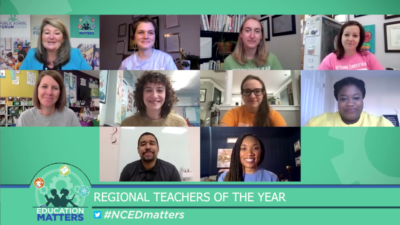

To varying degrees, early adulthood can feel like being adrift at sea. Most of us are successfully launched from the shore, some go askew almost immediately, some sail ahead with no direction at all — the most fortunate fire off with full equipment and a destination in their sights.
I was a lifetime honor roll student that somehow sunk my ship before even leaving the harbor. I made nearly all A’s, until high school, when I cracked under the pressure of identifying my path forward and could not properly manage my stress. So, I dropped out… twice. I got my G.E.D. and a job, but I was timid about school. Before dropping out, I had wanted to go to a local community college for graphic design but was discouraged when my guidance counselor responded to my idea with, “What could you even do with that?” This was in 2003. “Advertising, I guess?” I responded, without really knowing. I just thought saying, “designing CD covers,” would be an insufficient response.
I took some college courses in my early 20s but quickly became overwhelmed with my mounting student loans. Without any idea what I would do with the business administration degree I was aiming for, and no guarantee of a salary that would allow me both independence and the ability to pay back my loans, I dropped out again… twice. I had watched my parents lose our home and file for bankruptcy and was effectively traumatized. I was astutely apprehensive of accumulating too much debt. To protect my finances, I put my school plans on the shelf and, instead, worked to secure a salary (sans degree) that I thought could provide me a decent wage while I figured out my next move.
Nearly a decade later, I decided to go back to school at Forsyth Technical Community College. This time, in my 30s, I knew I wanted a clear view of my destination with some guarantee that I could afford to provide for myself and pay off any student loans when I graduated. I reviewed different environmental jobs since they aligned closely with my lifelong interests and values. I chose a career goal of becoming an environmental planner or environmental consultant, which would provide ecological expertise to urban planning and land management projects. Assuming things go as planned, this job has expected growth and comes with a salary that should allow me to live with a decent quality of life.
Systemic solutions needed
The obstacles I encountered are not unique to me, and the systemic solutions that would have helped me would also help our future generations accumulate wealth and financial stability.
Subsidizing higher education to reduce student loans would increase homeownership rates, home equity, and small business entrepreneurship 1. Early college programs (like the one offered at Forsyth Tech) would offer high school graduates associate degrees along with their diplomas. This jumpstart would allow recent grads to enter the job force with a better chance at a living wage and shorten the time required to achieve any additional degrees. Government assistance or nonprofit support for after-school programs could help students connect with mentors, discover their interests, and allow an opportunity for subsidized childcare for working parents.
As reported by Molly Osborne Urquhart in EdNC, strategic matching between academic advisors and students can assist with mentorship and networking and enhance the quality of counseling services. In addition, guidance counselors and advisors that are informed of job growth rates, local living wages, and resources that could help students identify their best options could provide important navigation for a student’s life and career.
A local look and a tool for empowerment
As a Phi Theta Kappa Honor Society member, I contributed to my chapter’s “Honors in Action” project this year. We chose the topic of economic mobility due to the devastatingly low financial rankings for Forsyth County, Winston-Salem, and North Carolina. As a result, we learned several issues that affect our local economy, like inefficient public transportation, a disparity between the educational requirements for nearby jobs and the expertise of the local population, and the extension of businesses into suburban and rural areas that restrict access and exaggerate commute times.
These issues are well-researched by local universities like Winston-Salem State University and organizations like the Center for the Study of Economic Mobility. Because our research project included a service aspect, we wanted to provide something to the community to allow citizens to address their financial situation immediately. We decided to develop a S.M.A.R.T. goal template for career planning. Like handing a new sailor a compass, map, and binoculars, we wanted to provide citizens with the tools to develop an informed path toward economic empowerment.
First, we wanted to be specific about what someone needed to live in the area. We opted for M.I.T.’s Living Wage Calculator for Forsyth County as a starting point for a target salary. We then used data from the Bureau of Labor Statistics to provide the average salaries for local jobs with their basic education requirements. This allows someone to create a measurable goal of which they can determine their confidence in attainability for each milestone, relevance to their interests, and timeliness within the context of their personal situation with their current work, health, and personal life.
We are hoping to expand access to this tool through this website, which is still under development. Please subscribe to be alerted when it is ready to use. We hope this helps our community bounce back from these poor economic rankings and allows us all a better quality of life.
Even if you currently feel adrift, keep your head high, stay afloat, and grab a life jacket if one appears. There is no singular path to success, and there are people in your community who want to help you find your way.




